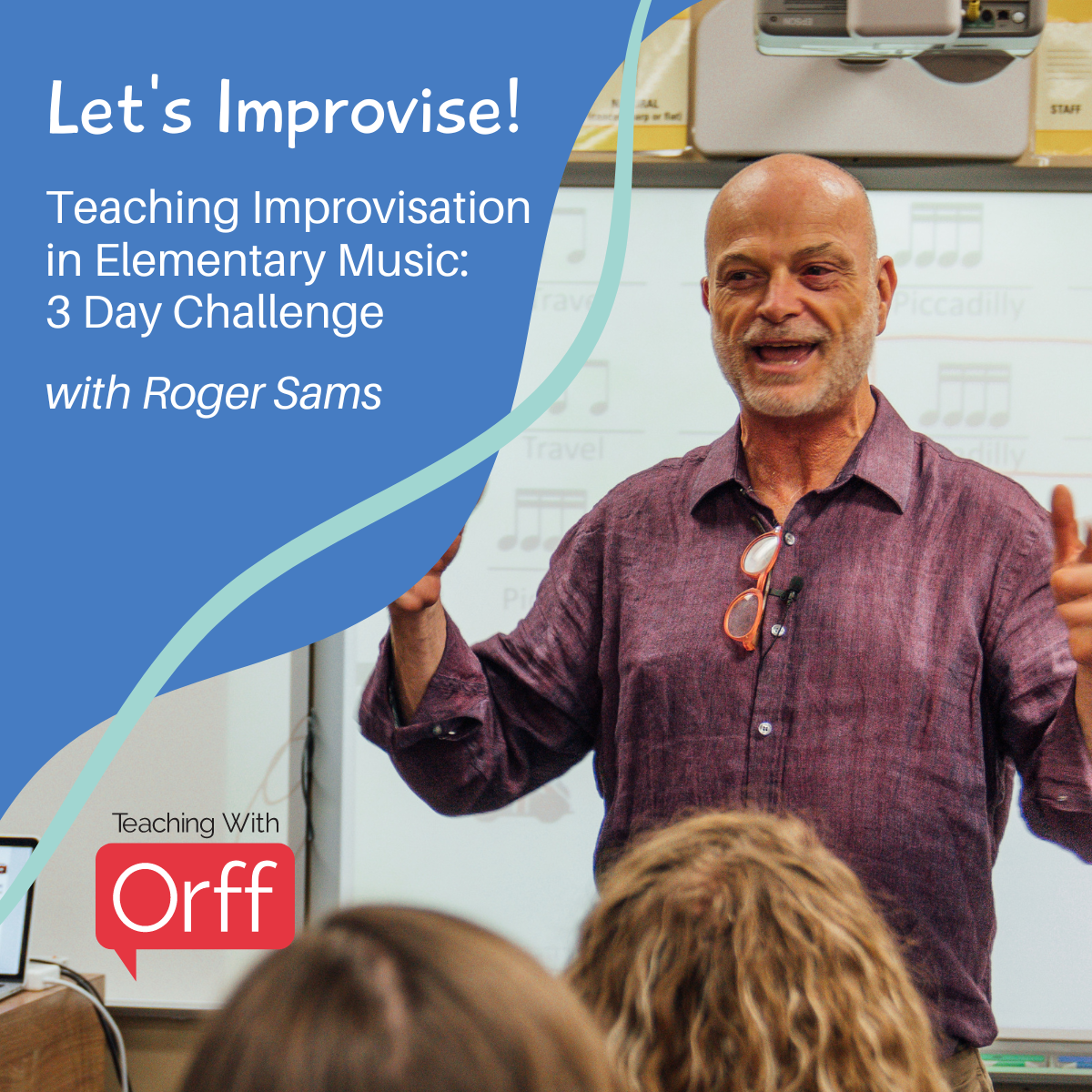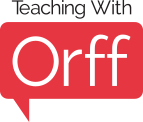
A Day in the Life of Orff Certification: Day 6
Orff Level I – Day 6
This weekend I realized that I have not spent much time, if any, talking about my recorder class and I really want to share some of the things I’ve been learning from Brian Burnett. Almost immediately I learned that he likes to use big words and has very fast paced lessons. This could be overwhelming as a student, but he always takes the time to be sure we understand him and are caught up. I think this style of teaching is very engaging for students because we always have to be alert or we’ll be left behind.
Today Brian taught us a recorder piece using a process he referred to as layering. When you teach by layering, you start with a simple skeleton of the piece – break it down into quarter notes or just downbeats, just be sure it is a very simplified version. After this, you give another layer that adds in a few more of the notes. Repeat with as many layers as necessary then finally reveal the entirety of the piece. I tend to use the “repeat after me” process almost all the time, so learning how to teach in a new way will be a great way to get my students focused and learning harder music. Also, layering allows for students that are having difficulty to stay back on an easier layer while quicker learners can move onto harder music. So often in my classroom the students who excel in music are waiting for others to catch up, so this is a nice way to differentiate instruction.
I’m definitely enjoying my recorder class – it is challenging which keeps me on my toes! I’m hoping I can do the same for my students this coming year when we pull back out our recorders and learn more than just our simple BAG songs!
Roger’s Brian’s Nuggets of Wisdom
(those small phrases that seem to pretty much sum up Orff Schulwerk)
“There’s always another bus” and “Get off at your stop” – Brian uses these phrases to help students understand differentiated instruction. If you get lost, don’t get upset, just jump back in when you know where we are. If you missed that bus, just wait for the next one! I also really enjoy the second phrase because it allows students to work on whatever is in their comfort zone. Even if Johnny is playing sixteenth notes, when Kate needs more practice on the skeleton of a song, let her stay there. Both students are working on mastering the level they are on – they stay on the bus until they need to get off for a while.
“Ontogeny” – I told you Brian likes big words! “Ontogeny” means the growth and development of an organism. In music, ontogeny plays out as the natural development of musical skills – you have to prepare and build up to learning how to do complicated tasks. For example, if you want to students to do pentatonic improvisation, you have to start with the basics – rhythm and rhythmic improvisation – and once that is secure, start adding melody. I am realizing over the course of taking Level I that I used activities last year that were not adequately prepared for my students in their previous lessons which is why they were unsuccessful. Next year I have to be much more aware of my students’ musical ontogeny and build up to the complicated tasks I want to use!
See all posts by Erin Clevenger
Sign up for latest Orff Tips, Lesson Plans and Advocacy Tools

Empower your students to create their own music in this free 3-day challenge with Roger Sams. (Lessons delivered via email)

Learn about the legendary factory that started it all and why so many teachers like you love our instruments.
